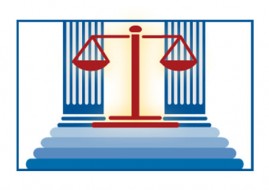Dangers of Engaging in Business with Your Client
By Peter James Johnson, Jr. [Originally published in NYPRR July 1998]
When a valued client suggests that you enter into a business transaction with him, think long and hard about it. The wrong decision can affect not only your liability insurance coverage, but your license to practice law.
The Third U.S. Circuit Court of Appeals in Seiko v. Home Insurance Co. [139 F.3d 146 (3d Cir. 1998)], in a unanimous decision, has asserted that the attorney who engages in conduct that a reasonable lawyer would deem improper is not entitled to coverage under a malpractice policy. William Selko, rendered quadriplegic by a car accident, granted his lawyer power of attorney to invest compensation received as a result of his injuries. Promising a 10% return, the lawyer invested the money into his own real estate venture, then defaulted on the “participation bonds” that were issued. He subsequently declared bankruptcy and was disbarred.
Client Seiko filed suit against the lawyer for malpractice and breach of fiduciary duty, resulting in an entry of judgment of almost half a million dollars against the lawyer and in the lawyer’s agreement to assign all rights under his professional liability policy to the client. Judge Levin H. Campbell wrote for the Circuit Court that Home Insurance could refuse to defend or indemnify the lawyer or his assignee under the professional liability policy because the lawyer had failed to disclose the potential claim on his insurance application.
The Court wrote “a case such as this is painful and may leave a malpractice victim without an effective remedy…But Courts cannot conscientiously rewrite an insurance contract between a defalcating attorney and his insurer in order to furnish coverage for the wronged assignee.”
Full Consent After Disclosure
The Seiko decision shows the risks to attorneys and clients when they enter into business transactions together. DR5-101 of the Code of Professional Responsibility prohibits lawyers from accepting employment by a client if the employment may be affected by the lawyers’ own financial business, property, or personal interests. DR5-104 is even more clear-cut in prohibiting a lawyer from entering into a business transaction with a client if there are differing interests and if the client expects the lawyer to exercise professional judgment on behalf of the client. The rule makes it clear that the only way such an arrangement should go forward is if the client provides consent after full disclosure by the lawyer.
An attorney who becomes his client’s business partner lays himself open to serious charges. In Rode v. Branca [48-1 F. Supp. 808 (E.D.N.Y. 1979)], District Judge Platt ultimately dismissed the complaint which relied on DR 5-101 and DR 5-104 as the basis for a claim that the attorney had breached his fiduciary duty. The Court ruled that the attorney “conducted himself throughout with sincerity and with no conscious or inadvertent abuse” of the client’s trust. Plaintiff argued that there were “differing interests” in the business relationship and that the attorney had acted short of the standard of utmost good faith, honesty, integrity, and fidelity established in Funds Ltd. v. Arthur Anderson & Co. [567 F. 2d 225 (2d Cir. 1977)]. The Court found otherwise, but assuredly the defendant attorney suffered sleepless nights and burdensome expense as a result of the charges, however unsubstantiated.
Questions to Ask
In considering a business relationship with a client or potential client, it is important to ask the following questions and to answer them in the affirmative:
1. Does your client have full knowledge of all the material facts, including the fact that you, the attorney, will derive financial benefit from your dealings with the client?
2. Is your client aware that you will have differing interests in the business undertaking and that you may be impelled to act in your own best interests to his detriment.
3. When applying for or renewing malpractice insurance have you disclosed all business relationships with clients or any claims by clients against you arising from business dealings?
4. Have you advised your client to seek other counsel (as required by cases interpreting DR 5-104.)
Entering into a contract with a client is fraught with risk. [Greene v. Greene, 56 N.Y.2d 86, 92 (1992).] The Court of Appeals has pointed out that an attorney’s obligations transcend those prevailing in the “commercial market place.” Therefore courts will construe agreements between attorneys and clients most favorably for the client. Proof by a client that he did not understand the terms or the effect of an agreement is sufficient to entitle a client to rescission. [Schianger v. Fiaton, 218 A.D.2d 602, 631 N.Y.S.2d 293 (1st Dept. 1995).] Do not be lulled into a false sense of security by the perceived sophistication or business acumen of your client/business partner. New York Courts have made it clear the client’s savvy is irrelevant and the standard of full disclosure of differing interests is mandated conduct. [Forest Park Assocs. LP v. Kraus, 175 A.D.2d 60, 62, 573 N.Y.S.2d 317, 318 (1st Dept. 1991).]
Restricted or Prohibited Transactions
There is a panoply of restricted and/or prohibited transactions between attorney and client. For example, DR 5-104(B) prohibits a lawyer (prior to the conclusion of the representation) from entering into any arrangement with a client by which the attorney acquires an interest in literary or media rights to the subject matter of the client’s representation. Commingling client funds with your own (DR 9-102(A); failing to maintain funds of a client in a special account separate from your own business or personal accounts [DR 9-102(B)]; engaging in conduct involving dishonesty, fraud, deceit, misrepresentation [DR 1-102(A)] — these are all activities that may warrant disbarment by the Appellate Division.
Public censure has been imposed for collecting accounts receivable of clients knowing that amounts received are to be retained on account of loans; making loans to clients and seeking repayment without making the required disclosure about the potential for conflicts of interest; and executing security agreements as “attorney in fact” on behalf of a client without the client’s knowledge or consent. [Matter of Grossfield, 150 A.D.2d 139, 545 N.YS.2d 718 (1st Dept. 1989).]
The Disciplinary Rules and the relevant case law serve as clear warnings to New York attorneys about the risks attendant in lawyer/client business dealings. Even with full disclosure, the potential for professional and economic harm to a lawyer by a dissatisfied business partner who also happens to be a client should be considered carefully before turning your client into your business partner. Just as the lawyer who represents himself may have a fool for a client, the lawyer who chooses to do business with his client may be equally foolhardy and may be choosing a path lined with potential litigation and professional censure.
DISCLAIMER: This article provides general coverage of its subject area and is presented to the reader for informational purposes only with the understanding that the laws governing legal ethics and professional responsibility are always changing. The information in this article is not a substitute for legal advice and may not be suitable in a particular situation. Consult your attorney for legal advice. New York Legal Ethics Reporter provides this article with the understanding that neither New York Legal Ethics Reporter LLC, nor Frankfurt Kurnit Klein & Selz, nor Hofstra University, nor their representatives, nor any of the authors are engaged herein in rendering legal advice. New York Legal Ethics Reporter LLC, Frankfurt Kurnit Klein & Selz, Hofstra University, their representatives, and the authors shall not be liable for any damages resulting from any error, inaccuracy, or omission.
Related Posts
« To Hell with Standards of Civility — Wait, Not So Fast! How to Deal with the (Truly) Repugnant Client »







